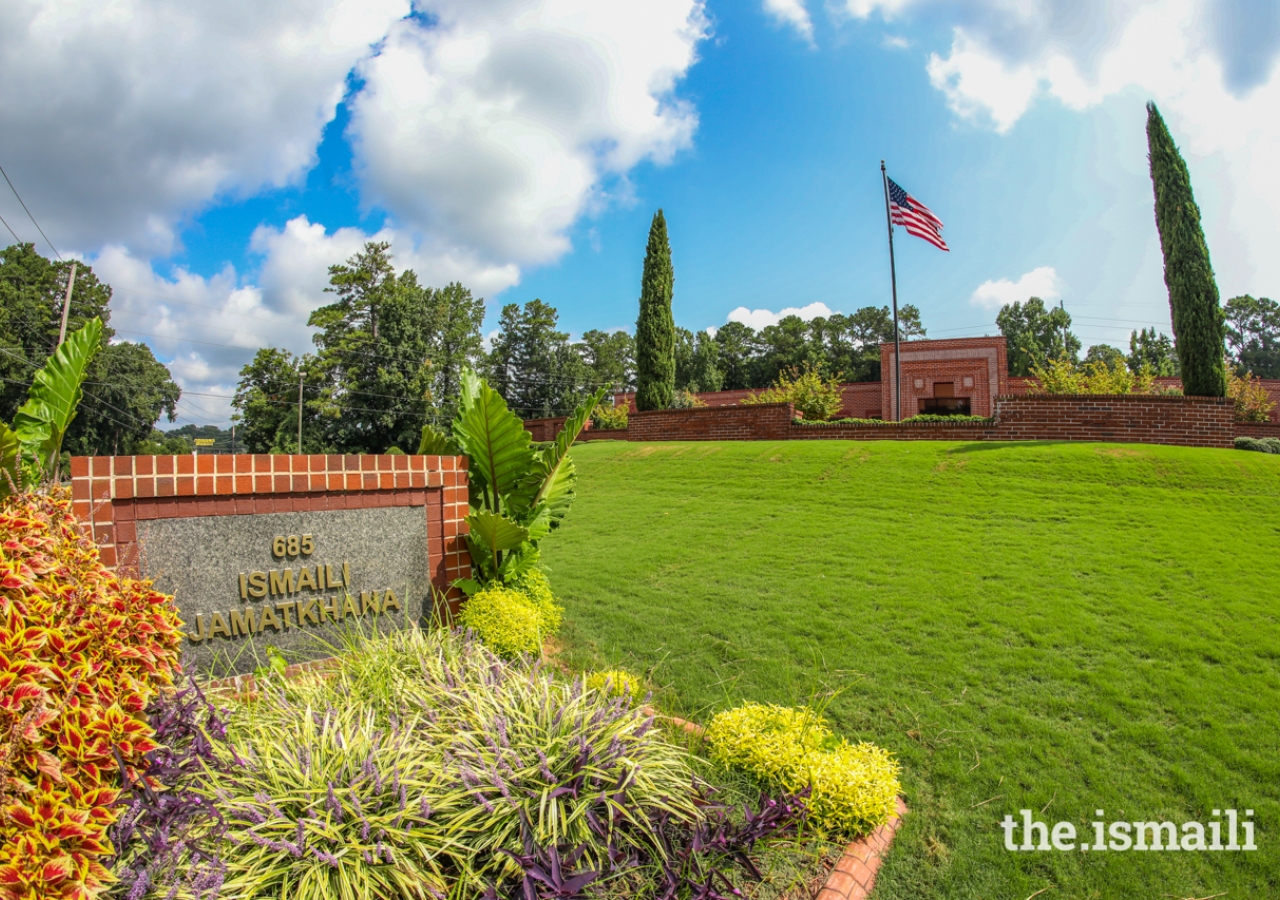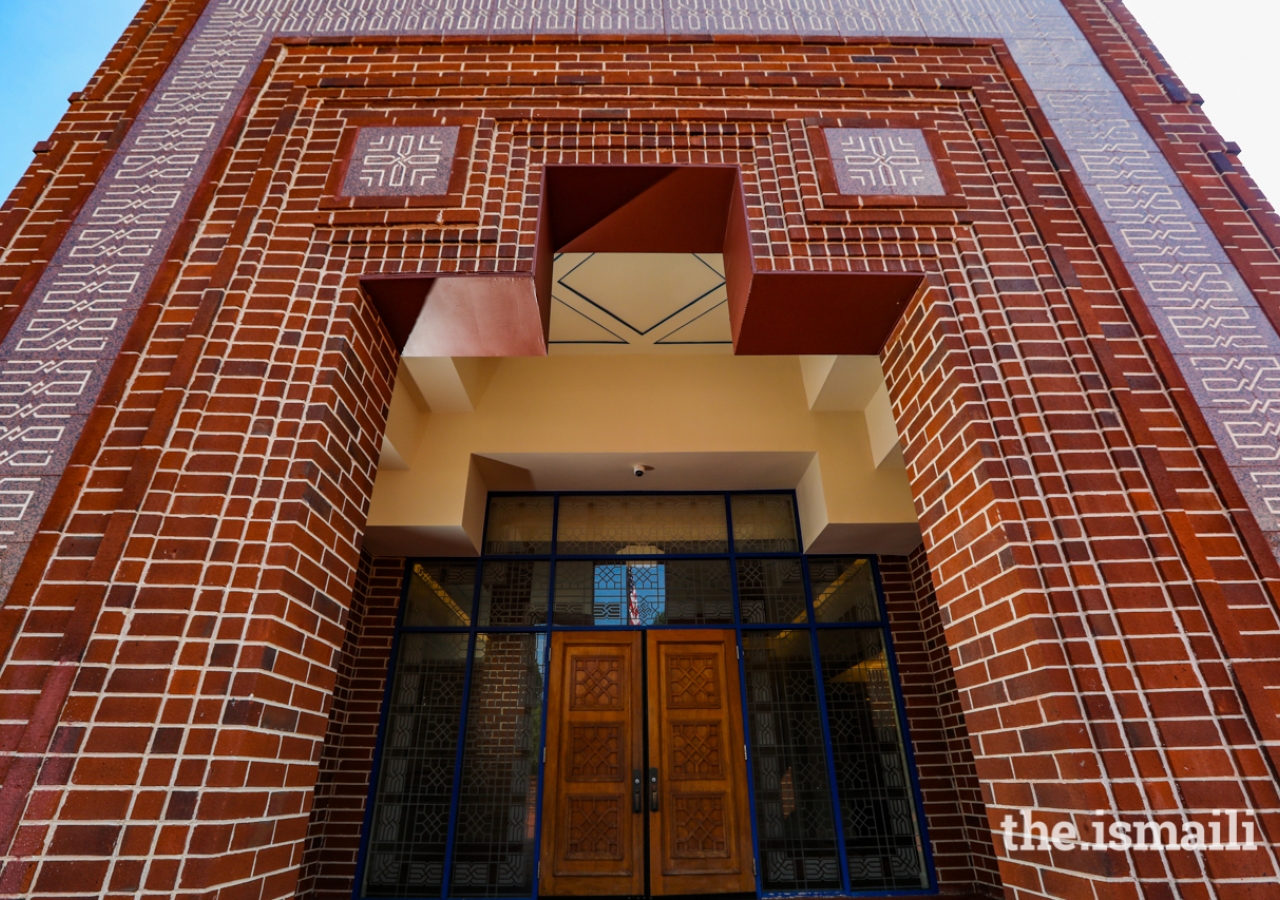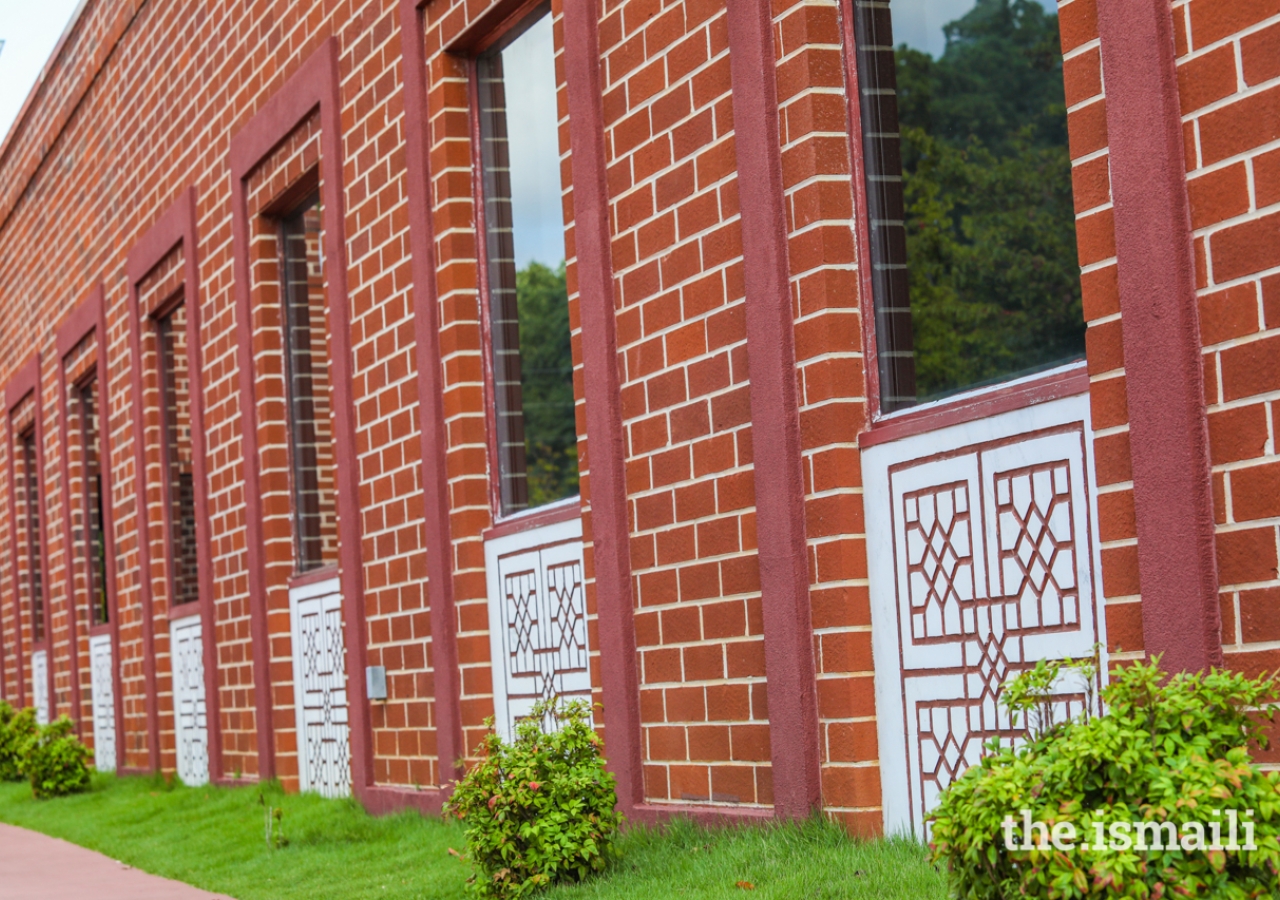The architect was Vancouver-based Farouk Noormohamed who later designed the Ismaili Center Dushanbe and the recently inaugurated Khorog Ismaili Jamatkhana in Tajikistan. Farouk was assisted by the local architect team of Dean Designs Atlanta and architect Zamila Karimi who now teaches at the College of Architecture and Construction Management at Kennesaw State University.
One enters the Jamatkhana through the courtyard surrounded by a verdant lawn. The lawn is adorned by beautiful plants and a water fountain, a symbol of purity and paradise that masks the street noise beyond. It is immediately clear that this is a place of serenity and tranquillity.
The grand entrance portal of the Ismaili Jamatkhana is situated in the center of the building and contains Arabic calligraphy on the brick and marble façade. The frosting on the glass above the entrance reads “Ali,” in reference to the first Shia Imam whose name represents the Gate to the City of Knowledge.
The surrounding stucco, glass, and jali (perforated stone or lattice-work) contain geometric patterns and calligraphy saying “Allah” in Arabic Kufic script. The repetitive design reminds worshippers of the infinite nature of the Creator. The white stucco under the exterior windows is engraved geometric patterns made by Al-Ummah Camp participants from the United States and Canada.
The lobby, also decorated with framed jali works, features a Proclamation presented by Governor Nathan Deal to Mawlana Hazar Imam on the occasion of his Diamond Jubilee visit to Atlanta in March 2018, recognizing his service to humanity over the last 60 years.
The Library contains books, many of which were published by the Institute of Ismaili Studies, (IIS) and the Aga Khan Museum, to remind visitors of the importance of seeking knowledge and the intellectual tradition of the Ismaili tariqah.
Adjacent to the Library are the Administrative Offices of the Ismaili Council for the Southeastern United States, and on the other side are the Religious Education classrooms. Religious Education classes teach Muslim civilizations and ethics ranging from primary level, taught by volunteers, to secondary level, taught by professional teachers with a dual Masters in Education and Muslim Studies from the IIS. There is also a room for Early Childhood Learning that utilizes a Montessori curriculum to engage in secular and faith and moral-based learning to help develop global leaders who have an inclusive and pluralistic outlook.
In the Prayer Hall, the qibla wall is a jali which allows light to filter through, symbolizing the grace of God illuminating our lives and reminding the worshipers of the inextricable connection in Islam between the spiritual and material. Geometric shapes and tessellations create endless patterns, referencing the infinite nature of the Divine and the unity of the creation. On the side windows are calligraphic renderings of Allah, Ali, and Muhammad, which allow natural light to filter in, making the Prayer Hall a peaceful and quiet space for personal search and congregational prayers.
The Ismaili Jamatkhana has been host to numerous events for the public around Atlanta. Events engage the community in dialogue and strive to reflect the diversity and pluralism within the Muslim Ummah. A recent Mediation Forum, for example, drew a large attendance of peacemakers and law enforcement officials to the Jamatkhana as did the Nonpartisan Candidate Forum for the Georgia House of Representatives and State Senate candidates. Sixteen candidates from the 2018 election cycle, equally representing the Republican and Democratic parties, shared their viewpoints with over 200 attendees from the wider community.
Events for the public where the Jamat and diverse communities of Atlanta can exchange knowledge and discuss issues of common interest, continue to expand. These include Interfaith gatherings, Eid celebrations with civic leaders, book launches, service initiatives, film shows, and speaker series. These serve one of the major objectives of an Ismaili Jamatkhana - that of being a valued and contributing element in the social fabric of the larger community.












